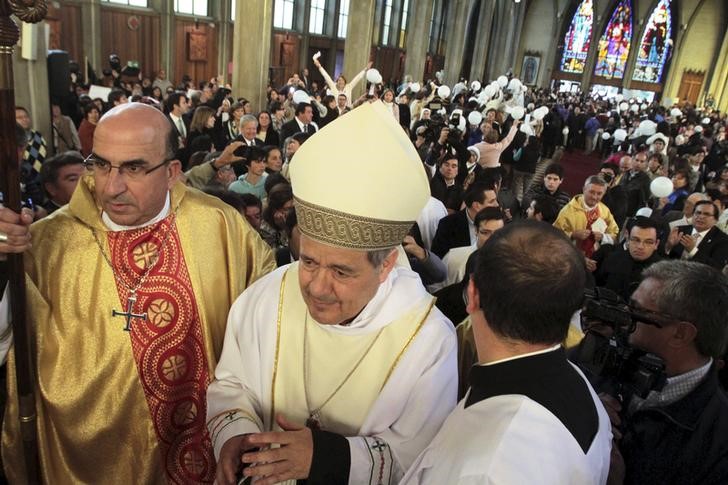SANTIAGO (Reuters) - Chile's Supreme Court on Thursday formally requested that the Vatican hand over all records that Pope Francis has relied upon to defend a Chilean bishop whose alleged knowledge and cover-up of church sex abuse has provoked controversy in the South American nation.
Many politicians, parishioners, and abuse victims say that Bishop Juan Barros knew of and helped cover up abuse by Chilean priest Fernando Karadima over a period of decades.
In 2011, the Vatican sentenced Karadima to "a life of prayer and penitence" for abusing children as far back as the 1950s. A judge later determined the accusations were valid though Karadima was not prosecuted as the statute of limitations had expired.
In March, Francis appointed Barros as the bishop of Osorno, a small city in south-central Chile, provoking raucous protests both there and in the capital, Santiago.
In the face of strong dissent among many Chileans, Francis has repeatedly defended the appointment, saying the accusations against Barros are unfounded.
During one high-profile incident at the Vatican on May 6, which was broadcast by a Chilean television station in early October, Francis told a group of Chileans in Saint Peters Square that the accusations were cooked up by "lefties."
On Friday, Chile's high court took the unusual step of asking the Vatican to present documents supporting the Pope's assertion.
"Deliver a complete and accurate copy of all the reports that you have concerning the investigation," the petition reads, specifically referring to the Pope's comments during the Saint Peters incident.
Next Friday, Barros, 59, is scheduled to be called to the witness stand as part of a civil suit presented by three men who allege they were sexually abused by Karadima, 85.
Barros has long drawn suspicions from many Chileans because of his close links with Karadima. Both were long-time members of a priestly society in Santiago called El Bosque, and Karadima served as Barros' mentor during the bishop's youth.

On Wednesday, Karadima took the witness stand before the Supreme Court in Santiago amid protests and denied having abused any children. His testimony provoked strong condemnations among both citizens and politicians, many of whom are convinced Karadima carried out the sexual abuse.